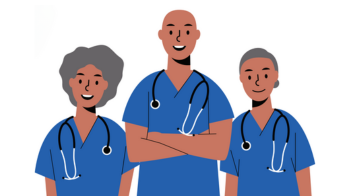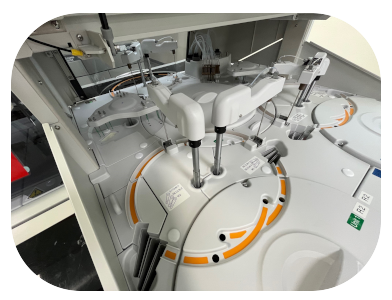Transport
Within North Bristol NHS Trust (NBT)
- Samples for Blood Sciences: (Biochemistry, Haematology and Immunology) and Infection Sciences: (Bacteriology, Virology, Antimicrobial assays (ARL) and Mycology (MRU)) should be sent via the air tube unless the sample type/reason appears in the list below.
- Samples that MUST NOT be sent via the air tube include:
- Urine for TB or suspected TB.
- Viral haemorrhagic fever.
- Histology or cytology.
- Category 4 microbes.
- Volumes over 100ml.
- Samples which need to remain frozen (e.g. via dry ice).
- Samples which need to be kept warm - special flasks are available for the transport of samples which have essential requirements to be kept warm (i.e. cryoglobulins, patients with cold agglutinins) - contact the Immunology or Haematology departments for these.
- Samples for COVID-19 can be sent via the air tube, but these MUST be double-bagged, sealed and sent in a new leak-proof carrier.
- Blood components and products will be transported in an appropriate, validated container packed by the Transfusion Laboratory.For Primary Care locations where Pathology Services are provided by North Bristol NHS Trust (NBT)
| Classification | Definition | UN assignment | Packaging code |
|---|---|---|---|
| Category A | Infectious substance transported in a form that, when exposure to it occurs, is capable of causing life threatening or fatal disease. Must be shipped by a designated courier. Notify laboratory prior to sending. | UN2814 – infectious substance for humans (UN2900 – infectious substance for animals) | 602
|
| Category B | Diagnostic specimen with no known risk of serious human or animal disease
| UN3373 – diagnostic specimen
| 650
|
UN3373, UN2814 and any other dangerous goods labelling must be fully visible at all times and not hidden behind sealing tape or address labels.
Sample collections from external locations (e.g. primary care, community) are made by the Pathology’s appointed medical courier Delivery Direct Logistics (DDL). For queries regarding this service please email Allison Brixey, Blood Sciences Manager, Allison.Brixey@nbt.nhs.uk.



